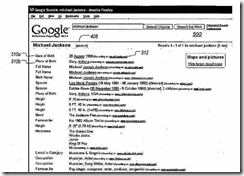Microsoft Causing Problems? Heck, No
July 14, 2023
![Vea4_thumb_thumb_thumb_thumb_thumb_t[1] Vea4_thumb_thumb_thumb_thumb_thumb_t[1]](http://arnoldit.com/wordpress/wp-content/uploads/2023/07/Vea4_thumb_thumb_thumb_thumb_thumb_t1_thumb-27.gif) Note: This essay is the work of a real and still-alive dinobaby. No smart software involved, just a dumb humanoid.
Note: This essay is the work of a real and still-alive dinobaby. No smart software involved, just a dumb humanoid.
I cruised through the headlines my smart news system prepared for me. I noted two articles on different subjects. The two write ups were linked with a common point of reference: Microsoft Corp., home of the Softies and the throbbing heart of a significant portion of the technology governments in North America and Western Europe find essential.
“What’s the big deal?” asks Mr. Microsoft. “You have Windows. You have Azure. Software has bugs. Get used to it. You can switch to Linux anytime.” Thin interesting scene is the fruit of MidJourney’s tree of creativity.
The first article appeared in TechRadar. an online real news outfit. The title was compelling; specifically, “Windows 11 Update Is Reportedly Slowing Down PCs and Breaking Internet Connections.” The write up reports:
KB5028185, the ‘Moment 3’ update, is proving seriously problematic for some users … The main bones of contention with patch KB5028185 for Windows 11 22H2 are instances of performance slowdown – with severe cases going by some reports – and problems with flaky internet connections.
The second story appeared on cable “real” news. I tracked down the item titled “US and Microsoft Sound Alarm about China-Based Cybersecurity Threat.” The main idea seems to be:
The U.S. and Microsoft say China-based hackers, focused on espionage, have breached email accounts of about two dozen organizations, including U.S. government agencies.
Interesting. Microsoft seems to face two challenges: Desktop engineering and cloud engineering. The common factor is obviously engineering.
I am delighted that Bing is improving with smart software. I am fascinated by Microsoft’s effort to “win” in online games. However, isn’t it time for something with clout to point out that Microsoft may need to enhance its products’ stability, security, and reliability.
Due to many organizations’ and individuals’ dependence on Microsoft, the company seems to have a knack for creating a range of issues. Will someone step up and direct the engineering in a way that does not increase vulnerability and cause fiduciary loss for its customers?
Anyone? Crickets I fear. Bad actors find Microsoft’s approach more satisfying than a stream of TikTok moments.
Stephen E Arnold, July 14, 2023
Open AI and Its Alignment Pipeline
July 12, 2023
![Vea4_thumb_thumb_thumb_thumb_thumb_t[1] Vea4_thumb_thumb_thumb_thumb_thumb_t[1]](http://arnoldit.com/wordpress/wp-content/uploads/2023/07/Vea4_thumb_thumb_thumb_thumb_thumb_t1_thumb-15.gif) Note: This essay is the work of a real and still-alive dinobaby. No smart software involved, just a dumb humanoid.
Note: This essay is the work of a real and still-alive dinobaby. No smart software involved, just a dumb humanoid.
Yep, alignment pipeline. No, I have zero clue what that means. I came across this felicitous phrase in “OpenAI Co-Founder Warns Superintelligent AI Must Be Controlled to Prevent Possible Human Extinction.” The “real news” story focuses on the PR push for Sam AI-Man’s OpenAI outfit. The idea for the story strikes me as a PR confection, but I am a dinobaby. Dinobabies can be skeptical.
An OpenAI professional explains to some of his friends that smart software may lead to human extinction. Maybe some dogs and cockroaches will survive. He points out that his company may save the world with an alignment pipeline. The crowd seems to be getting riled up. Someone says, “What’s an alignment pipeline.” A happy honk from the ArnoldIT logo to the ever-creative MidJourney system. (Will it be destroyed too?)
The write up reports a quote from one of Sam AI-Man’s colleagues; to wit:
“Superintelligence will be the most impactful technology humanity has ever invented, and could help us solve many of the world’s most important problems. But the vast power of superintelligence could also be very dangerous, and could lead to the disempowerment of humanity or even human extinction,” Ilya Sutskever and head of alignment Jan Leike wrote in a Tuesday blog post, saying they believe such advancements could arrive as soon as this decade.
There you go. Global warming, the threat of nuclear discharges in Japan and Ukraine, post-Covid hangover, and human extinction. Okay
What’s interesting to this dinobaby is that OpenAI made a decision to make the cloud service available. OpenAI hooked up with the thoughtful, kind, and humane Microsoft. OpenAI forced the somewhat lethargic Googzilla to shift into gear and respond.
The Murdoch article presents another OpenAI wizard output:
“Currently, we don’t have a solution for steering or controlling a potentially superintelligent AI, and preventing it from going rogue. Our current techniques for aligning AI, such as reinforcement learning from human feedback, rely on humans’ ability to supervise AI. But humans won’t be able to reliably supervise AI systems much smarter than us and so our current alignment techniques will not scale to superintelligence,” they wrote. “We need new scientific and technical breakthroughs.”
This type of jibber jabber is fascinating. I wonder why the OpenAI folks did not do a bit of that “what if” thinking before making the service available. Yeah, woulda, shoulda, coulda. It sounds to me like a driver saying to a police officer, “I didn’t mean to run over Grandma Wilson.”
How does that sound to the grand children, Grandma’s insurance company, and the judge?
Sounds good, but someone ran over Grandma Wilson, right, Mr. OpenAI wizards? Answer the question, please.
The OpenAI geniuses have an answer, and I quote:
To solve these problems, within a period of four years, they said they’re leading a new team and dedicating 20% of the compute power secured to date to this effort. “While this is an incredibly ambitious goal and we’re not guaranteed to succeed, we are optimistic that a focused, concerted effort can solve this problem,” they said.
Now the capstone:
Its goal is to devise a roughly human-level automated alignment researcher, using vast amounts of compute to scale it and “iteratively align superintelligence.” In order to do so, OpenAI will develop a scalable training method, validate the resulting model and then stress test its alignment pipeline.
Yes, the alignment pipeline. What a crock of high school science club yip yap. Par for the course today. Nice thinking, PR people. One final thought: Grandma is dead. CYA words may not impress some people. To a high school science club type, the logic and the committee make perfect sense. Good work, Mr. AI-Men.
Stephen E Arnold, July 12, 2023
Pricing Smart Software: Buy Now Because Prices Are Going Up in 18 hours 46 Minutes and Nine Seconds, Eight Seconds, Seven…
July 7, 2023
![Vea4_thumb_thumb_thumb_thumb_thumb_t[1] Vea4_thumb_thumb_thumb_thumb_thumb_t[1]](http://arnoldit.com/wordpress/wp-content/uploads/2023/07/Vea4_thumb_thumb_thumb_thumb_thumb_t1_thumb-6.gif) Note: This essay is the work of a real and still-alive dinobaby. No smart software involved, just a dumb humanoid.
Note: This essay is the work of a real and still-alive dinobaby. No smart software involved, just a dumb humanoid.
I ignore most of the apps, cloud, and hybrid products and services infused with artificial intelligence. As one wit observed, AI means artificial ignorance. What I find interesting are the pricing models used by some of the firms. I want to direct your attention to Sheeter.ai. The service let’s one say in natural language something like “Calculate the median of A:Z rows.” The system then spits out the Excel formula which can be pasted into a cell. The Sheeter.ai formula works in Google Sheets too because Google wants to watch Microsoft Excel shrivel and die a painful death. The benefits of the approach are similar to services which convert SQL statements into well-formed SQL code (in theory). Will the dynamic duo of Google and Microsoft implement a similar feature in their spreadsheets? Of course, but Sheeter.ai is betting their approach is better.
The innovation for which Sheeter.ai deserves a pat on the back is its approach to pricing. The screenshot below makes clear that the price one sees on the screen at a particular point in time is going to go up. A countdown timer helps boost user anxiety about price.
I was disappointed when the graphics did not include a variant of James Bond (the super spy) chained to an explosive device. Bond, James Bond, was using his brain to deactivate the timer. Obviously he was successful because there have been a half century of Bond, James Bond, films. He survives every time time.
Will other AI-infused products and services implement anxiety patterns to induce people to provide their name, email, and credit card? It seems in line with the direction in which online and AI businesses are moving. Right, Mr. Bond. Nine, eight, seven….
Stephen E Arnold, July 7, 2023
Google and Its Use of the Word “Public”: A Clever and Revenue-Generating Policy Edit
July 6, 2023
![Vea4_thumb_thumb_thumb_thumb_thumb_t[1] Vea4_thumb_thumb_thumb_thumb_thumb_t[1]](http://arnoldit.com/wordpress/wp-content/uploads/2023/07/Vea4_thumb_thumb_thumb_thumb_thumb_t1_thumb-9.gif) Note: This essay is the work of a real and still-alive dinobaby. No smart software involved, just a dumb humanoid.
Note: This essay is the work of a real and still-alive dinobaby. No smart software involved, just a dumb humanoid.
If one has the cash, one can purchase user-generated data from more than 500 data publishers in the US. Some of these outfits are unknown. When a liberal Wall Street Journal reporter learns about Venntel or one of these outfits, outrage ensues. I am not going to explain how data from a user finds its ways into the hands of a commercial data aggregator or database publisher. Why not Google it? Let me know how helpful that research will be.
Why are these outfits important? The reasons include:
- Direct from app information obtained when a clueless mobile user accepts the Terms of Use. Do you hear the slurping sounds?
- Organizations with financial data and savvy data wranglers who cross correlate data from multiple sources?
- Outfits which assemble real-time or near-real-time user location data. How useful are those data in identifying military locations with a population of individuals who exercise wearing helpful heart and step monitoring devices?
Navigate to “Google’s Updated Privacy Policy States It Can Use Public Data to Train its AI Models.” The write up does not make clear what “public data” are. My hunch is that the Google is not exceptionally helpful with its definitions of important “obvious” concepts. The disconnect is the point of the policy change. Public data or third-party data can be purchased, licensed, used on a cloud service like an Oracle-like BlueKai clone, or obtained as part of a commercial deal with everyone’s favorite online service LexisNexis or one of its units.
A big advertiser demonstrates joy after reading about Google’s detailed prospect targeting reports. Dossiers of big buck buyers are available to those relying on Google for online text and video sales and marketing. The image of this happy media buyer is from the elves at MidJourney.
The write up states with typical Silicon Valley “real” news flair:
By updating its policy, it’s letting people know and making it clear that anything they publicly post online could be used to train Bard, its future versions and any other generative AI product Google develops.
Okay. “the weekend” mentioned in the write up is the 4th of July weekend. Is this a hot news or a slow news time? If you picked “hot”, you are respectfully wrong.
Now back to “public.” Think in terms of Google’s licensing third-party data, cross correlating those data with its log data generated by users, and any proprietary data obtained by Google’s Android or Chrome software, Gmail, its office apps, and any other data which a user clicking one of those “Agree” boxes cheerfully mouses through.
The idea, if the information in Google patent US7774328 B2. What’s interesting is that this granted patent does not include a quite helpful figure from the patent application US2007 0198481. Here’s the 16 year old figure. The subject is Michael Jackson. The text is difficult to read (write your Congressman or Senator to complain). The output is a machine generated dossier about the pop star. Note that it includes aliases. Other useful data are in the report. The granted patent presents more vanilla versions of the dossier generator, however.
The use of “public” data may enhance the type of dossier or other meaty report about a person. How about a map showing the travels of a person prior to providing a geo-fence about an individual’s location on a specific day and time. Useful for some applications? If these “inventions” are real, then the potential use cases are interesting. Advertisers will probably be interested? Can you think of other use cases? I can.
The cited article focuses on AI. I think that more substantive use cases fit nicely with the shift in “policy” for public data. Have your asked yourself, “What will Mandiant professionals find interesting in cross correlated data?”
Stephen E Arnold, July 6, 2023
Quantum Seeks Succor Amidst the AI Tsunami
July 5, 2023
![Vea4_thumb_thumb_thumb_thumb_thumb_t[1] Vea4_thumb_thumb_thumb_thumb_thumb_t[1]](http://arnoldit.com/wordpress/wp-content/uploads/2023/07/Vea4_thumb_thumb_thumb_thumb_thumb_t1_thumb-5.gif) Note: This essay is the work of a real and still-alive dinobaby. No smart software involved, just a dumb humanoid.
Note: This essay is the work of a real and still-alive dinobaby. No smart software involved, just a dumb humanoid.
Imagine the heartbreak of a quantum wizard in the midst of the artificial intelligence tsunami. What can a “just around the corner” technology do to avoid being washed down the drain? The answer is public relations, media coverage, fascinating announcements. And what companies are practicing this dark art of outputting words instead of fully functional, ready-to-use solutions?
Give up?
I suggest that Google and IBM are the dominant players. Imagine an online ad outfit and a consulting firm with mainframes working overtime to make quantum computing exciting again. Frankly I am surprised that Intel has not climbed on its technology stallion and ridden Horse Ridge or Horse whatever into PR Land. But, hey, one has to take what one’s newsfeed delivers. The first 48 hours of July 2023 produced two interesting items.
The first is “Supercomputer Makes Calculations in Blink of an Eye That Take Rivals 47 Years.” The write up is about the Alphabet Google YouTube construct and asserts:
While the 2019 machine had 53 qubits, the building blocks of quantum computers, the next generation device has 70. Adding more qubits improves a quantum computer’s power exponentially, meaning the new machine is 241 million times more powerful than the 2019 machine. The researchers said it would take Frontier, the world’s leading supercomputer, 6.18 seconds to match a calculation from Google’s 53-qubit computer from 2019. In comparison, it would take 47.2 years to match its latest one. The researchers also claim that their latest quantum computer is more powerful than demonstrations from a Chinese lab which is seen as a leader in the field.
Can one see this fantastic machine which is 241 million times more powerful than the 2019 machine? Well, one can see a paper which talks about the machine. That is good enough for the Yahoo real news report. What do the Chinese, who have been kicked to the side of the Information Superhighway, say? Are you joking? That would be work. Writing about a Google paper and calling around is sufficient.
If you want to explore the source of this revelation, navigate to “Phase Transition in Random Circuit Sampling.” Note that the author has more than 175 authors is available from ArXiv.org at https://arxiv.org/abs/2304.11119. The list of authors does not appear in the PDF until page 37 (see below) and only about 80 appear on the abstract page on the ArXiv splash page. I scanned the list of authors and I did not see Jeff Dean’s name. Dr. Dean is/was a Big Dog at the Google but …
Just to make darned sure that Google’s Quantum Supremacy is recognized, the organizations paddling the AGY marketing stream include NASA, NIST, Harvard, and more than a dozen computing Merlins. So there! (Does AGY have an inferiority complex?)
The second quantum goody is the write up “IBM Unlocks Quantum Utility With its 127-Qubit “Eagle” Quantum Processing Unit.” The write up reports as actual factual IBM’s superior leap frogging quantum innovation; to wit, coping with noise and knowing if the results are accurate. The article says via a quote from an expert:
The crux of the work is that we can now use all 127 of Eagle’s qubits to run a pretty sizable and deep circuit — and the numbers come out correct
The write up explains:
The work done by IBM here has already had impact on the company’s [IBM’s] roadmap – ZNE has that appealing quality of making better qubits out of those we already can control within a Quantum Processing Unit (QPU). It’s almost as if we had a megahertz increase – more performance (less noise) without any additional logic. We can be sure these lessons are being considered and implemented wherever possible on the road to a “million + qubits”.
Can one access this new IBM approach? Well, there is this article and a chart.
Which quantum innovation is the more significant? In terms of putting the technology in one laptop, not much. Perhaps one can use the system via the cloud? Some may be able to get outputs… with permission of course.
But which is the PR winner? In my opinion, the Google wins because it presents a description of a concept with more authors. IBM, get your marketing in gear. By the way, what’s going on with the RedHat dust up? Quantum news releases won’t make that open source hassle go away. And, Google, the quantum stuff and the legion of authors is unlikely to impress European regulators.
And why make quantum noises before a US national holiday? My hunch is that quantum is perfect holiday fodder. My question, “When will the burgers be done?”
Stephen E Arnold, July 5, 2023
Amazon AWS PR: A Signal from a Weakening Heart?
June 26, 2023
![Vea4_thumb_thumb_thumb_thumb_thumb_t[1] Vea4_thumb_thumb_thumb_thumb_thumb_t[1]](http://arnoldit.com/wordpress/wp-content/uploads/2023/06/Vea4_thumb_thumb_thumb_thumb_thumb_t1_thumb-39.gif) Note: This essay is the work of a real and still-alive dinobaby. No smart software involved, just a dumb humanoid.
Note: This essay is the work of a real and still-alive dinobaby. No smart software involved, just a dumb humanoid.
I read “Amazon’s vision: An AI Model for Everything.” Readers of these essays know that I am uncomfortable with categorical affirmatives like “all”, “every”, and “everything.” The article in Semafor (does the word remind you of a traffic light in Lima, Peru?) is an interview with a vice president of Amazon Web Services. AWS is part of the online bookstore and digital flea market available at Amazon.com. The write up asserts that AWS will offer an “AI model for everything.” Everything? That’s a modest claim for a fast moving and rapidly changing suite of technologies.
Amazon executives — unlike some high-technology firms’ professionals — are usually less visible. But here is Matt Wood, the VP of AWS, explaining the digital flea market’s approach to smart software manifested in AWS cloud technology. I thought AWS was numero uno in the cloud computing club. Big dogs don’t do much PR but this is 2023, so adaptation is necessary I assume. AWS is shadowed by Microsoft, allegedly was number two, in the Cloud Club. Make no mistake, the Softies and their good enough software are gunning for the top spot in a small but elite strata of the techno world. The Google, poor Google, is lumbering through a cloud bedecked market with its user first, super duper promises for the future and panting quantum, AI, Office 365 with each painful step.
In a gym, high above the clouds in a sky scraper in the Pacific northwest, a high powered denizen of the exclusive Cloud Club, experiences a chest pain in the rarified air. After saying, “Hey, I am a-okay.” The sleek and successful member of an exclusive club, yelps and grabs his chest. Those in the club express shock and dismay. But one person seems to smile. Is that a Microsoftie or a Googler looking just a little bit happy at the fellow member’s obvious distress? MidJourney cooked up a this tasty illustration. Thanks, you plagiarism free bot you.
The Semafor interview offers some statements about its goals. No information about AWS and its Byzantine cloud pricing policies, nor is much PR light shed on the yard sale approach to third party sourced products.
Here are three snippets which caught my attention. (I call these labored statements because each seems as if a committee of lawyers, blue chip consultants, and interns crafted them, but that’s just my opinion. You may find these gems worthy of writing on a note card and saving for those occasions when you need a snappy quotation.)
Labored statement one
But there’s an old Amazon adage that these things are usually an “and” and not an “or.” So we’re doing both.
Got that? Boolean, isn’t it? Even though Amazon AWS explained its smart software years ago, a fact I documented in an invited lecture I gave in 2019, the company has not delivered on its promise of “off the shelf, ready to run” models, packaged data sets, and easy-to-use methods so AWS customers could deploy smart software easily. Like Amazon’s efforts in blockchain, some ideational confections were in the AWS jungle. A suite of usable and problem solving services were not. Has AWS pioneered in more than complicated cloud pricing?
Labored statement two
The ability to take that data and then take a foundational model and just contribute additional knowledge and information to it very quickly and very easily, and then put it into production very quickly and very easily, then iterate on it in production very quickly and very easily. That’s kind of the model that we’re seeing.
Ah, ha. I loved the “just.” Easy stuff. Digital Lego blocks. I once stayed in the Lego hotel. On arrival, I watched a team of Lego professionals trying to reassemble one of the Lego sculptures some careless child had knocked over. Little rectangles littered the hotel lobby. Two days later when I checked out, the Lego Star Wars’ figure was still being reassembled. I thought Lego toys were easy to use. Oh, well. My perception of AWS is that there are many, many components. Licensees can just assemble them as long as they have the time, expertise, and money. Is that the kind of model AWS will deliver or is delivering?
Labored statement three
ChatGPT may be the most successful technology demo since the original iPhone introduction. It puts a dent in the universe.
My immediate reaction: “What about fire, the wheel, printing, the Internet?” And I liked the fact that ChatGPT is a demonstration. Let me describe how Amazon handles its core functions. The anecdote dates from early 2022. I wrote about ordering an AMD Ryzen 5950 and receiving from Amazon a pair of red female-centric underwear.
This red female undergarment arrived after I ordered an AMD Ryzen 5950 CPU. My wife estimated the value of the giant sized personal item at about $4.00US. The 5950 cost me about $550.00US. I am not sure how a warehouse fulfillment professional or a poorly maintained robot picker could screw up my order. But Amazon pulled it off and then for almost a month insisted the panties were the CPU.
This picture is the product sent to me by Amazon instead of an AMD Ryzen 5950 CPU. For the full story see, “Amazon: Is the Company Losing Control of Essentials?” After three weeks of going back and forth with Amazon’s stellar customer service department, my money was refunded. I was told to keep the underwear which now hang on the corner of the computer with the chip. I was able to buy the chip for a lower price from B+H Photo Video. When I opened the package, I saw the AMD box, not a pair of cheap, made-heaven-knows-where panties.
What did that say about Amazon’s ability to drive the Bezos bulldozer now that the founder rides his yacht, lifts weights, and ponders how Elon Musk and SpaceX have become the go-to space outfit? Can Amazon deliver something the customer wants?
Several observations:
First, this PR effort is a signal that Amazon is aware that it is losing ground in the AI battle.
Second, the Amazon approach is unlikely to slow Microsoft’s body slam of commercial customers. Microsoft’s software may be “good enough” to keep Word and SharePoint lovers on the digital ranch.
Third, Amazon’s Bezos bulldozer drivers seem to have lost its GPS signal. May I suggest ordering a functioning GPS from Wal-Mart?
Basics, Amazon, basics, not words. Especially words like “everything.” Do one thing and do it well, please.
Stephen E Arnold, June 26, 2023
High School Redux: Dust Up in the Science Club
June 22, 2023
![Vea4_thumb_thumb_thumb_thumb_thumb_t[1] Vea4_thumb_thumb_thumb_thumb_thumb_t[1]](http://arnoldit.com/wordpress/wp-content/uploads/2023/06/Vea4_thumb_thumb_thumb_thumb_thumb_t1_thumb-33.gif) Note: This essay is the work of a real and still-alive dinobaby. No smart software involved, just a dumb humanoid.
Note: This essay is the work of a real and still-alive dinobaby. No smart software involved, just a dumb humanoid.
One cannot make up certain scenarios. Let me illustrate.
Navigate to “Google Accuses Microsoft of Anticompetitive Cloud Practices in Complaint to FTC.” You will have to pony up to read the article. The main point is that the Google “filed a complaint to the U.S. Federal Trade Commission.” Why? Microsoft is acting in an unfair manner. Is the phrase “Holy cow” applicable. Two quasi or at least almost monopolies are at odds. Amazing.
MidJourney’s wealth of originality produced this image of two adolescents threatening one another. Is the issue a significant other? A dented bicycle? A solution to a tough math problem like those explained by PreMath? Nope. The argument is about more weighty matters: Ego. Will one of these mature wizards call their mom? A more likely outcome is to let loose a flurry of really macho legal eagles and/or a pride of PR people.
But the next item is even more fascinating. Point your click monitoring, data sucking browser at “Send Me Location: Mark Zuckerberg Says He’s Down to Fight Elon Musk in a Cage Match.” Visualize if you will Elon Musk and Mark Zuckerberg entering the ring at a Streetbeefs’ venue. The referee is the ever-alert Anomaly. Scarface is in the ring just in case some real muscle is needed to separate the fighters.
Let’s step back: Google wants to be treated fairly because Microsoft is using its market power to make sure the Google is finding it difficult to expand its cloud business. What’s the fix? Google goes to court. Yeah, bold. What about lowering prices, improving service, and providing high value functionality? Nah, just go to court. Is this like two youngsters arguing in front of their lockers and one of them telling the principal that Mr. Softie is behaving badly.
And the Musk – Zuckerberg drama? An actual physical fight? No proxies. Just no-holds-barred fisticuffs? Apparently that’s the implication of the cited story. That social media territory is precious by golly.
Several observations:
- Life is surprising
- Alleged techno-giants are oblivious to the concept of pettiness
- Adolescent behavior, not sophisticated management methods, guide certain firms.
Okay, ChatGPT, beat these examples for hallucinatory content. Not even smart software can out-think how high school science club members process information and behave in front of those not in the group.
Stephen E Arnold, June 22, 2023
Call 9-1-1. AI Will Say Hello Soon
June 20, 2023
![Vea4_thumb_thumb_thumb_thumb_thumb_t[1]_thumb_thumb Vea4_thumb_thumb_thumb_thumb_thumb_t[1]_thumb_thumb](http://arnoldit.com/wordpress/wp-content/uploads/2023/06/Vea4_thumb_thumb_thumb_thumb_thumb_t1_thumb_thumb_thumb-5.gif) Note: This essay is the work of a real and still-alive dinobaby. No smart software involved, just a dumb humanoid.
Note: This essay is the work of a real and still-alive dinobaby. No smart software involved, just a dumb humanoid.
My informal research suggests that every intelware and policeware vendor is working to infuse artificial intelligence or in my lingo “smart software” into their products and services. Most of these firms are not Chatty Cathies. The information about innovations is dribbled out in talks at restricted attendance events or in talks given at these events. This means that information does not zip around like the posts on the increasingly less use Twitter service #osint.
Government officials talking about smart software which could reduce costs but the current budget does not allow its licensing. Furthermore, time is required to rethink what to do with the humanoids who will be rendered surplus and ripe for RIF’ing. One of the attendees wisely asks, “Does anyone want dessert?” A wag of the dinobaby’s tail to MidJourney which has generated an original illustration unrelated to any content object upon which the system inadvertently fed. Smart software has to gobble lunch just like government officials.
However, once in a while, some information becomes public and “real news” outfits recognize the value of the information and make useful factoids available. That’s what happened in “A.I. Call Taker Will Begin Taking Over Police Non-Emergency Phone Lines Next Week: Artificial Intelligence Is Kind of a Scary Word for Us,” Admits Dispatch Director.”
Let me highlight a couple of statements in the cited article.
First, I circled this statement about Portland, Oregon’s new smart system:
A automated attendant will answer the phone on nonemergency and based on the answers using artificial intelligence—and that’s kind of a scary word for us at times—will determine if that caller needs to speak to an actual call taker,” BOEC director Bob Cozzie told city commissioners yesterday.
I found this interesting and suggestive of how some government professionals will view the smart software-infused system.
Second, I underlined this passage:
The new AI system was one of several new initiatives that were either announced or proposed at yesterday’s 90-minute city “work session” where commissioners grilled officials and consultants about potential ways to address the crisis.
The “crisis”, as I understand it, boils down to staffing and budgets.
Several observations:
- The write up makes a cautious approach to smart software. What will this mean for adoption of even more sophisticated services included in intelware and policeware solutions?
- The message I derived from the write up is that governmental entities are not sure what to do. Will this cloud of unknowing have a impact on adoption of AI-infused intelware and policeware systems?
- The article did not include information from the vendor? Is this fact provide information about the reporter’s research or does it suggest the vendor was not cooperative. Intelware and policeware companies are not particularly cooperative nor are some of the firms set up to respond to outside inquiries. Will those marketing decisions slow down adoption of smart software?
I will let you ponder the implications of this brief, and not particularly detailed article. I would suggest that intelware and policeware vendors put on their marketing hats and plug them into smart software. Some new hurdles for making sales may be on the horizon.
Stephen E Arnold, June 20. 2023
Google: FUD Embedded in the Glacier Strategy
June 9, 2023
![Vea4_thumb_thumb_thumb_thumb_thumb_t[1] Vea4_thumb_thumb_thumb_thumb_thumb_t[1]](http://arnoldit.com/wordpress/wp-content/uploads/2023/06/Vea4_thumb_thumb_thumb_thumb_thumb_t1_thumb-12.gif) Note: This essay is the work of a real and still-alive dinobaby. No smart software involved, just a dumb humanoid.
Note: This essay is the work of a real and still-alive dinobaby. No smart software involved, just a dumb humanoid.
Fly to Alaska. Stand on a glacier and let the guide explains the glacier moves, just slowly. That’s the Google smart software strategy in a nutshell. Under Code Red or Red Alert or “My goodness, Microsoft is getting media attention for something other than lousy code and security services. We have to do something sort of quickly.”
One facet of the game plan is to roll out a bit of FUD or fear, uncertainty, and doubt. That will send chills to some interesting places, won’t it. You can see this in action in the article “Exclusive: Google Lays Out Its Vision for Securing AI.” Feel the fear because AI will kill humanoids unless… unless you rely on Googzilla. This is the only creature capable of stopping the evil that irresponsible smart software will unleash upon you, everyone, maybe your dog too.
The manager of strategy says, “I think the fireball of AI security doom is going to smash us.” The top dog says, “I know. Google will save us.” Note to image trolls: This outstanding illustration was generated in a nonce by MidJourney, not an under-compensated creator in Peru.
The write up says:
Google has a new plan to help organizations apply basic security controls to their artificial intelligence systems and protect them from a new wave of cyber threats.
Note the word “plan”; that is, the here and now equivalent of vaporware or stuff that can be written about and issued as “real news.” The guts of the Google PR is that Google has six easy steps for its valued users to take. Each step brings that user closer to the thumping heart of Googzilla; to wit:
- Assess what existing security controls can be easily extended to new AI systems, such as data encryption;
- Expand existing threat intelligence research to also include specific threats targeting AI systems;
- Adopt automation into the company’s cyber defenses to quickly respond to any anomalous activity targeting AI systems;
- Conduct regular reviews of the security measures in place around AI models;
- Constantly test the security of these AI systems through so-called penetration tests and make changes based on those findings;
- And, lastly, build a team that understands AI-related risks to help figure out where AI risk should sit in an organization’s overall strategy to mitigate business risks.
Does this sound like Mandiant-type consulting backed up by Google’s cloud goodness? It should because when one drinks Google juice, one gains Google powers over evil and also Google’s competitors. Google’s glacier strategy is advancing… slowly.
Stephen E Arnold, June 9, 2023
Microsoft Code: Works Great. Just Like Bing AI
June 9, 2023
![Vea4_thumb_thumb_thumb_thumb_thumb_t[1] Vea4_thumb_thumb_thumb_thumb_thumb_t[1]](http://arnoldit.com/wordpress/wp-content/uploads/2023/06/Vea4_thumb_thumb_thumb_thumb_thumb_t1_thumb-8.gif) Note: This essay is the work of a real and still-alive dinobaby. No smart software involved, just a dumb humanoid.
Note: This essay is the work of a real and still-alive dinobaby. No smart software involved, just a dumb humanoid.
For Windows users struggling with certain apps, help is not on the way anytime soon. In fact, reports TechRadar, “Windows 11 Is So Broken that Even Microsoft Can’t Fix It.” The issues started popping up for some users of Windows 11 and Windows 10 in January and seem to coincide with damaged registry keys. For now the company’s advice sounds deceptively simple: ditch its buggy software. Not a great look. Writer Matt Hanson tells us:
“On Microsoft’s ‘Health’ webpage regarding the issue, Microsoft notes that the ‘Windows search, and Universal Windows Platform (UWP) apps might not work as expected or might have issues opening,’ and in a recent update it has provided a workaround for the problem. Not only is the lack of a definitive fix disappointing, but the workaround isn’t great, with Microsoft stating that to ‘mitigate this issue, you can uninstall apps which integrate with Windows, Microsoft Office, Microsoft Outlook or Outlook Calendar.’ Essentially, it seems like Microsoft is admitting that it’s as baffled as us by the problem, and that the only way to avoid the issue is to start uninstalling apps. That’s pretty poor, especially as Microsoft doesn’t list the apps that are causing the issue, just that they integrate with ‘Windows, Microsoft Office, Microsoft Outlook or Outlook Calendar,’ which doesn’t narrow it down at all. It’s also not a great solution for people who depend on any of the apps causing the issue, as uninstalling them may not be a viable option.”
The write-up notes Microsoft says it is still working on these issues. Will it release a fix before most users have installed competing programs or, perhaps, even a different OS? Or maybe Windows 11 snafus are just what is needed to distract people from certain issues related to the security of Microsoft’s enterprise software. Will these code faults surface (no pun intended) in Microsoft’s smart software. Of course not. Marketing makes software better.
Cynthia Murrell, June 9, 2023













